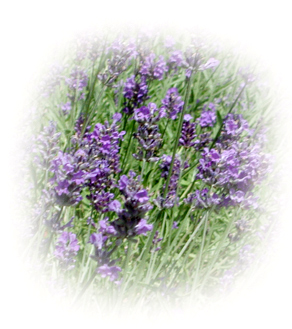Lavender
|
|
| Lavandula officinalis
Lamiaceae
|
|
|
Legend and Lore Lavender is derived from the Latin “lavare” and French “lave” which means to wash. Throughout the centuries lavender is used to mask household smell, stinking streets, lavender oil was used to scent tanned leather and was noticed that it seem to ward off plague and pestilence. Infusions is said to soothe headaches, halitosis and nerves. Lavender is a great stress buster! Mildly antiseptic it is used topically. Bunches of lavender were placed in cradles to calm babies. France started to cultivate for the perfume trade in the 17th century. From the naughty file: it is reputed that that if Louis XIV wanted to seduce a lady he would send her lavender flower spikes dipped in ambergris (a fixative used in perfumes). If she so desired the seduction she would in the presence of the king put the flower spikes into her mouth. Gives a new meaning to oral fixation… |
|
|
In the Garden When part of the botanical name is officinalis the plant is considered an official medicinal plant and was highly prized. The ‘Munstead’ cultivar was grown from seed by Gertrude Jekyll in Munstead Wood Garden. 40 to 50 plants were grown from one single seed packet; hundreds of cuttings were taken from the mother plants. Natural insecticide that repels mosquitoes and flies. Lavandula angustifolia English lavender is the hardiest cultivar and survives our freeze and thaw weather. Propagation is by cuttings or purchasing new plants, grown from seed they may vary considerably in appearance, fragrance and hardiness. To harvest, gather the flowering stems just as the flowers open, early morning after the dew has evaporated. Air drying is recommended in total darkness to preserve the lavender-blue colour. They need a good shearing in early spring to keep from getting to leggy. Good companion to roses. |
|



